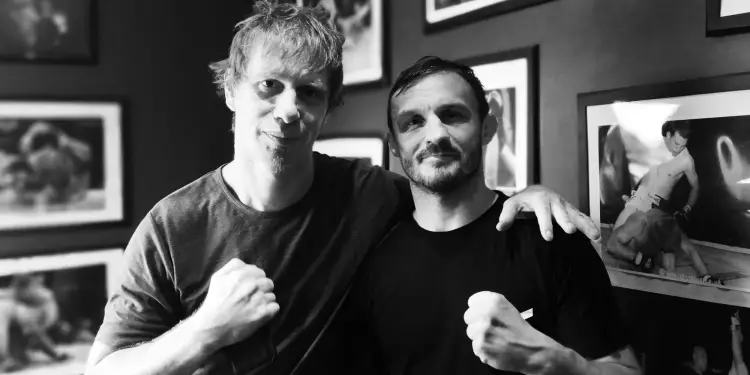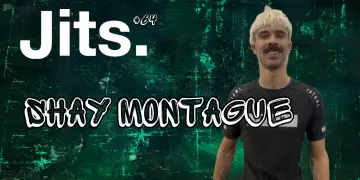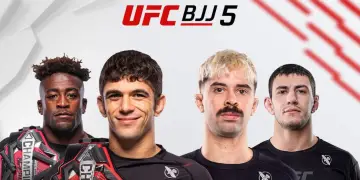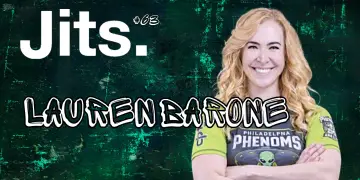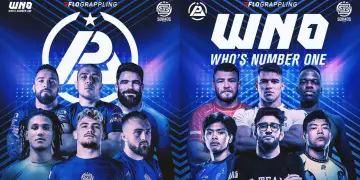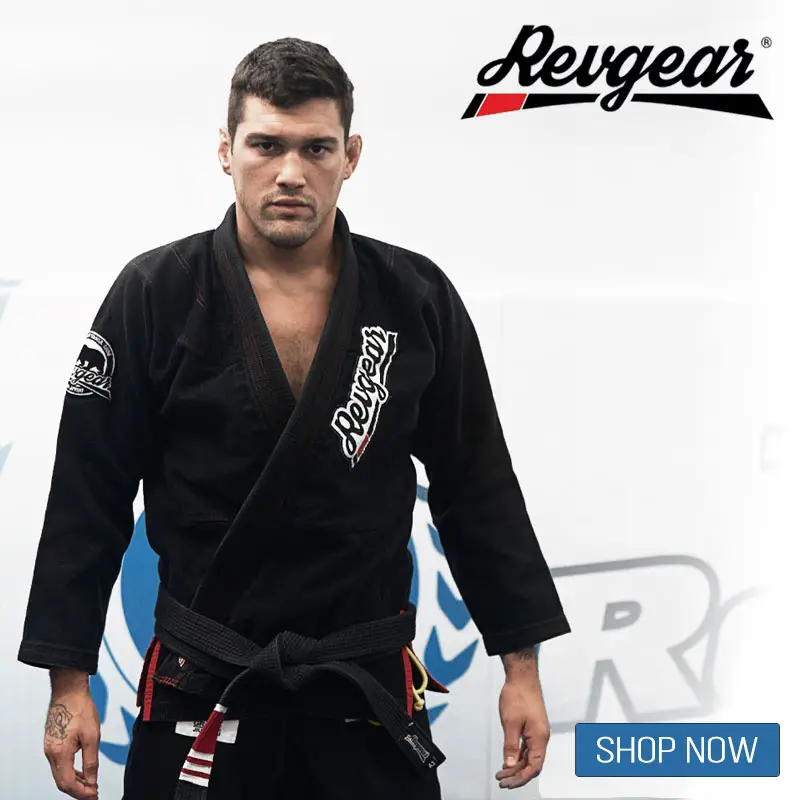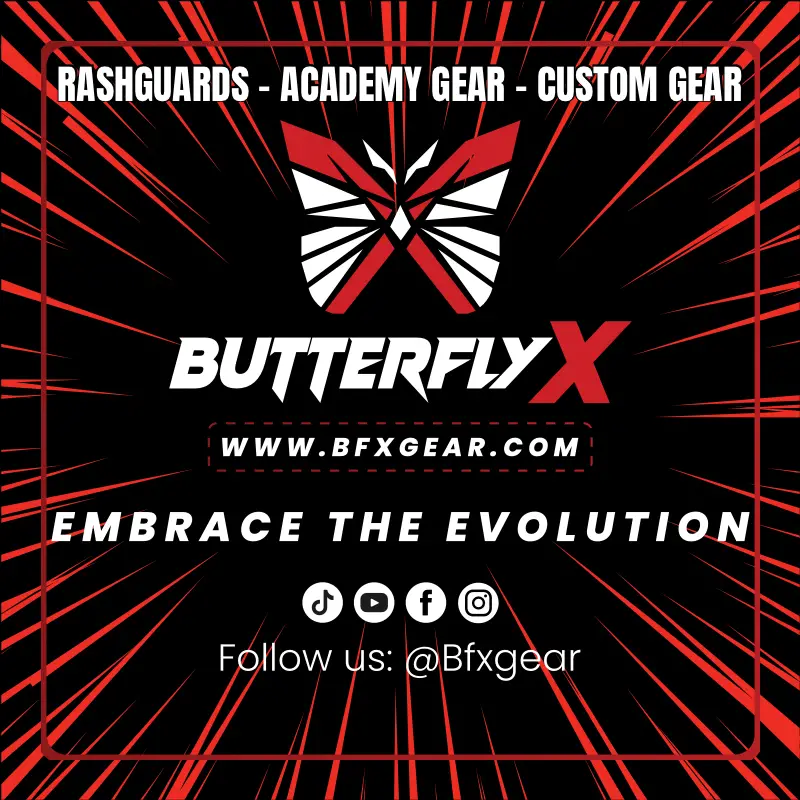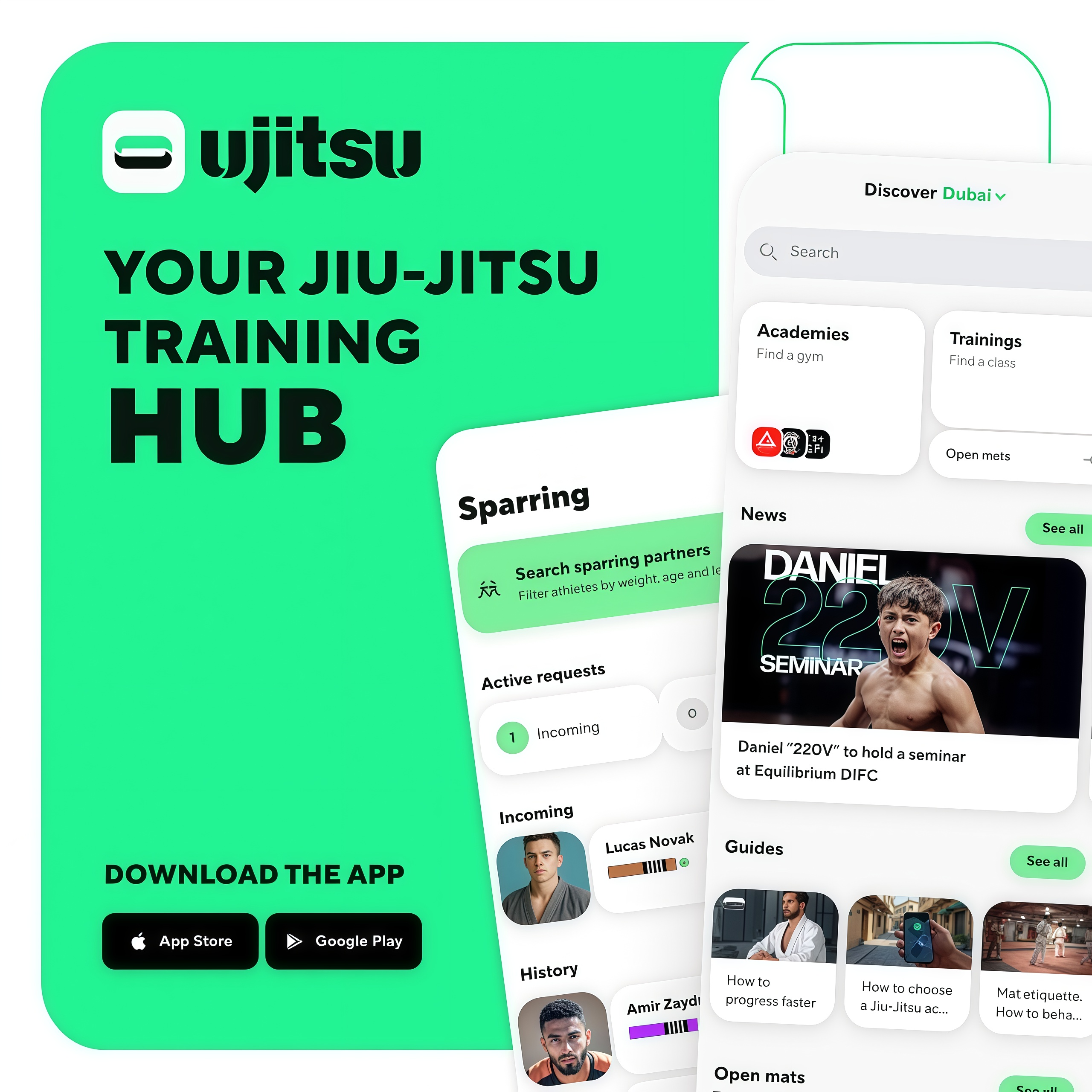We recently got the chance to sit down with Alex Wright, the brand director at Revgear, Martial Artist of over 30 years experience and BJJ black Belt under Angel Lopez, in order to get some inside-information on the world of sponsorship in BJJ and MMA. It’s actually one of the most important parts of both sports, as many competitors will make a fairly large chunk of their income through various sponsorship deals. Particularly in BJJ, where the money available directly from competition is low, sponsorship is vital for the survival of competitors. The way sponsorship works changes as athletes develop and naturally the best competitors in the world will receive better deals, but we wanted to find out more about how it works at all levels.
Hi Alex, to kick things off, could you tell us a little about your background in martial arts?
“I started in martial arts as a direct consequence of getting into a fight at age 17 with two big guys, fully grown men. Without going too far into it, it wasn’t a great result for me. I was outnumbered and out muscled.”
“After recovering I had two choices at that juncture and it became a defining moment in my life; I could either run away from what happened mentally or face it. I chose to face it and everything that happened from that point onwards was different to what happened before. The martial arts journey itself was born from the realisation that I needed to do something much better than I’d done it previously.”
Wright also shared a nugget of wisdom that he has realised since starting his martial arts journey:
“Most (masculine) guys believe, somewhere in their heart, that they can drive, fight, and are attractive to women. Often they find they can’t do the first two and they’re actually really not the third either, but all three on that list can be radically improved by just learning some skills and building knowledge and the confidence that comes with that knowledge. My initial foray into martial arts was all to do with that second thing, nothing to do with sport or competition but all to do with learning how to fight when you had to.”
How did that initial fight come about?
“All I wanted to be at 16 was a musician and I spent most of my time playing music in various different settings. Many of them were very rough and tough places and I have no idea how many altercations I had during that period of time, but it was a lot. I was playing in professional and amateur bands at the same time, and most of the places I played for money were pretty rough places.”
And is that when you started Jiu-Jitsu?
“No, the first martial art I tried was Tae Kwon Do and honestly, I have no idea why. It was just a martial art that was popular at the time back in about 1990. It took me a while, but I realised that Tae Kwon Do was not an effective fighting martial art and went to boxing and Wing Chun instead. From about the next 10 years from there, I spent most of my time striking. I did a little Judo and maybe three sessions of traditional Jiu-Jitsu but boxing and Wing Chun were the real constant. I did a lot of sparring over the years and fast-forward to my late 20s, MMA had started and it coincided with the end of my music career. I threw all of my energy and time into martial arts as a replacement for music.”
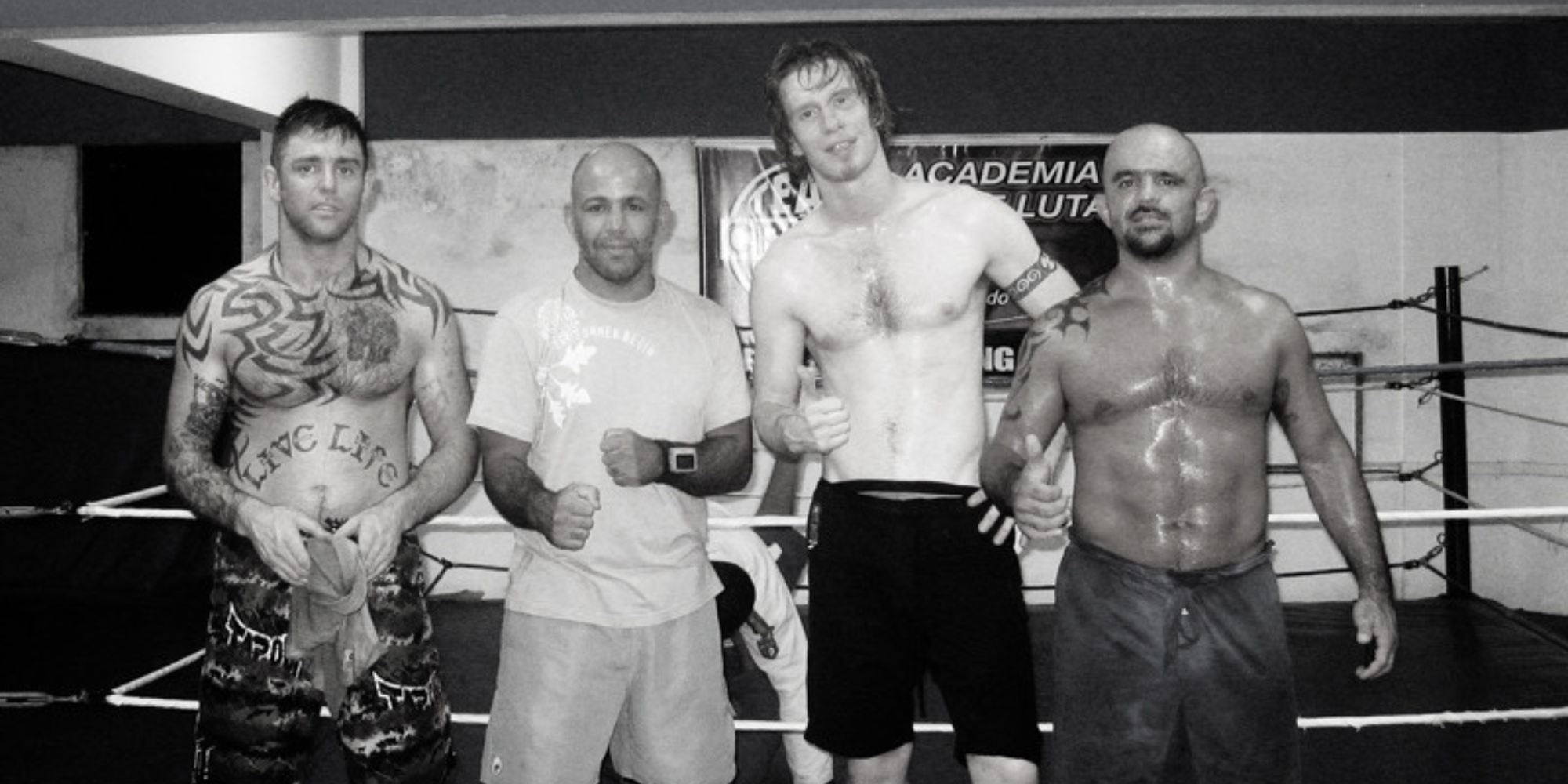
Wright then shared how he actually discovered MMA too:
“I joined an MMA club next door to where my band was rehearsing, that was pretty much the only reason I chose it at the time. I met up with a guy called Pete Tiarks who had just got back from Thailand and a bunch of other guys. Once I found out about this new MMA thing, that was basically all I did. We went all over the place trying to find places to train because at that time, there wasn’t a single Jiu-Jitsu black belt in the North-East of England. We found a guy called Dave ‘Speedy’ Elliot who was a well-known MMA fighter and a blue belt at the time, so we joined his club. BJJ was basically like a foundation martial art for MMA at the time for me, it was about learning grappling for MMA rather than Jiu-Jitsu itself.”
It’s pretty predictable that Wright’s introduction to the industry came through his love of training, but it was actually much more of a coincidence than you might think:
“I actually had my first MMA fight two or three months before I got my blue belt. I got that from Mauricio Gomes (Roger Gracie’s father) in London while I was training at Mark Walder’s gym. Funnily enough that’s where I got introduced to the industry as well, because a guy called Andy Smith used to run the British MMA company Evolution and he worked in the same building. I started working with him in the Sales and Marketing department and it just all went from there.”
So what is it you do as Revgear Brand Director today?
“I have the majority ownership of Revgear Europe and I’m a non-executive director of Revgear global, so I sit on the board of directors at Revgear as a company. Brand Director could mean anything I guess, but I am responsible for the brand’s newer lines and I’m heavily involved in product development as a whole. As an example, I basically designed our entire Jiu-Jitsu line and I’ve had a huge hand in the development of many of the products you’ll see at Revgear now. I have a big say in how things look and I deal with a lot of our relationships, including those with big name fighters and managers. I’m responsible for a lot of our sponsorship stuff too, and our inter-brand relationships with many companies over the years such as Lion Fight, Smoothcomp, and Fight 2 Win.”
You’ve obviously worked with some of the biggest names in BJJ and MMA in your time, but how do you set up those kinds of sponsorship deals at Revgear?
“One of the best stories is Robson Gracie Jr. One of his guys was calling one of the Revgear sales team because he really liked some of our gear and it came up in a meeting and I went ‘Robson Gracie Jr?! Has it not clicked with you who that is?’ I took a second to google him and showed them that he was Renzo Gracie’s brother, but they didn’t even realise who he was. I told them to give him some gear straight away, and get me his number while they’re at it. We just happened to be looking for that sort of figurehead for the Jiu-Jitsu line at the time and that’s how that came about.”
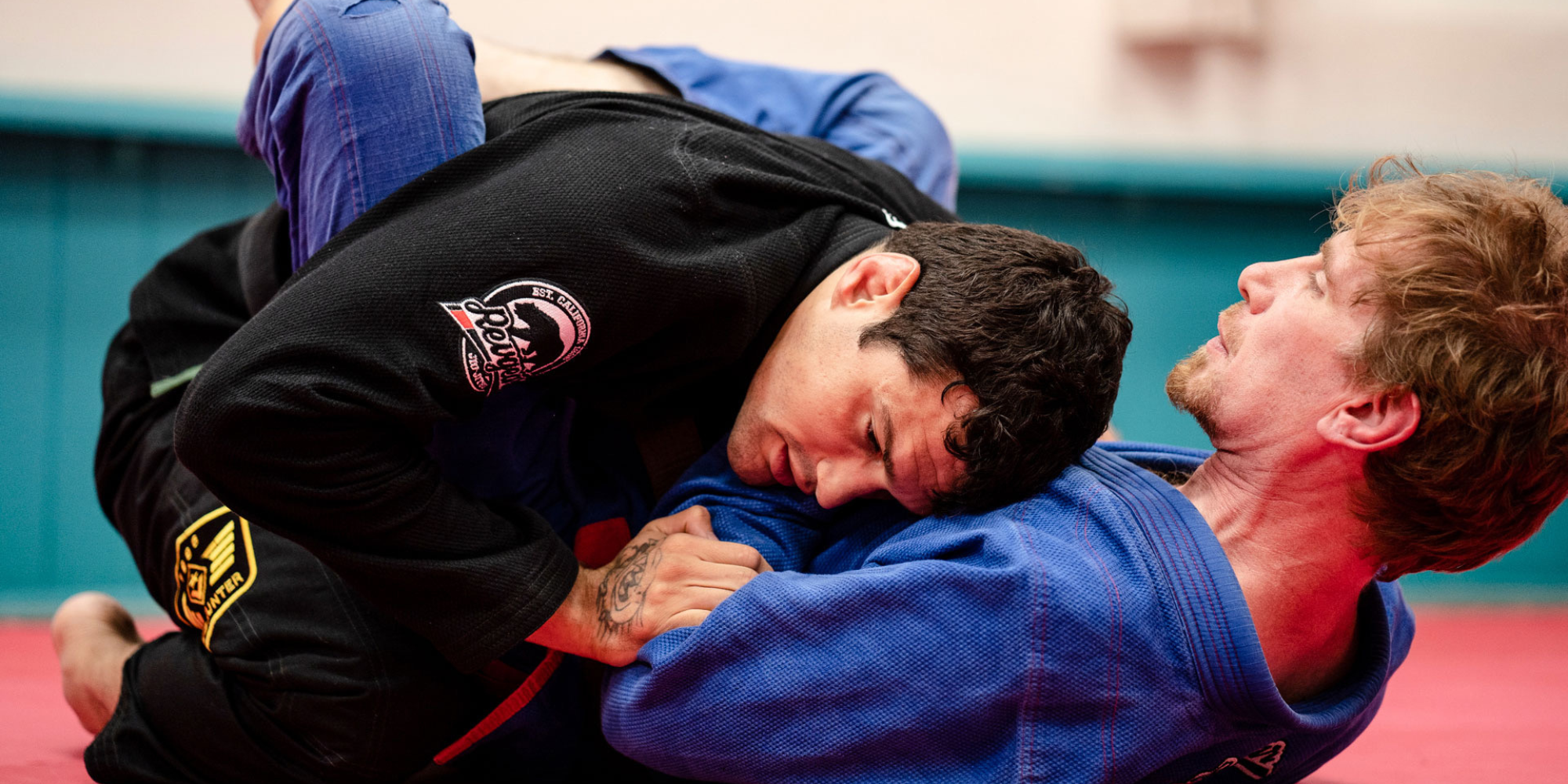
How do you know who specifically to work with?
“If you want someone to be an important figurehead for your brand then they’ve got to fit the ethos of your brand, it doesn’t matter how well-known they are. Our motto is ‘Pro gear for pro fighters’ so we’re not all about tattoos, fireballs, snakes and dragons etc.. Some brands are, they’re about being loud. That’s not a good thing or a bad thing either, it’s just a thing. The profile of the athlete has to match the profile of the brand. Like Sean O’Malley just wouldn’t be right for Revgear. He’s really famous but he would just be the wrong guy for us, whereas Randy Couture was a great athlete for us because he was the archetypal clean-cut athlete who was a consummate professional.”
Wright went on to explain that the highest level of the sport works a lot differently to the lowest level. Although stories of famous fighters are always great, we really wanted to know more about how the fighters working their way up to the top can come to his attention:
“At a lower level, there’s a lot of different ways that an athlete would come to a brand’s attention. Sometimes it’s personal connections or management, especially in the MMA space there’s some very professional management set-ups. You’ll often deal with athletes as the result of dealing with management, or coaches even. If you have a strong relationship with a coach and they ask what you can do for three or four of their fighters then they’re always going to get a better reception.”
If a BJJ competitor or MMA fighter trains under a coach you don’t have a relationship with, how do they get their foot in the door in terms of sponsorship?
“I’ll start out with the negative and say this on record for the interview, if you do this with a brand then expect no response. If you do get one then you’re very lucky, and the brand’s probably not worth working with anyway. We often get an email or facebook message that looks like this: ‘My name is Joe Bloggs and I’ve done next to nothing in the sport. I’ll name-drop one or two of my training partners who are loosely in the same team and if you give me X, Y, and Z; I’ll wear your gear and you’ll get more sales because people will see me in it.’ That’s instantly in the bin, because the very first thing you look for is some form of relationship. The first thing you ask as a brand is ‘are you actually already using our gear?’ Why would we sponsor a guy who doesn’t even use our gear to begin with? It’s like, if you don’t like the food in the restaurant then why are you asking for it for free?”
That makes sense, I guess you want to know that they actually like the product.
“It’s not just that. Number one question, and I think every brand will agree with this, is ‘are you actively endorsing this product now?’ Not are you going to, but are you already doing it now. We’ve got thousands of loyal customers, so why would we choose to sponsor someone who doesn’t use us over someone who does?”
Wright clearly feels passionately about supporting his customer base, and it makes sense really. According to him though, it also connects back to his first point about the brand and the competitor being sponsored matching up together:
”Largely, all the gis and rashguards are the same. There are different quality levels, let’s say that, but they all serve the same purpose. Whether you want a Kingz gi or a Revgear gi or a Tatami gi, there’s no real difference in performance with any of them. That’s the reality, I designed the whole range and I’ll put my hands up and say that. There’s definitely a difference with the lower brands who make things as cheaply as they can but if you look at all the proper respectable brands, of which there are many, there’s no real difference in performance. So it comes down to what brand you align with, whatever it is about them that you like, so if someone wants to be sponsored by a brand then they should align with them. If they actually do, then they’ll almost certainly already have some of their equipment.”
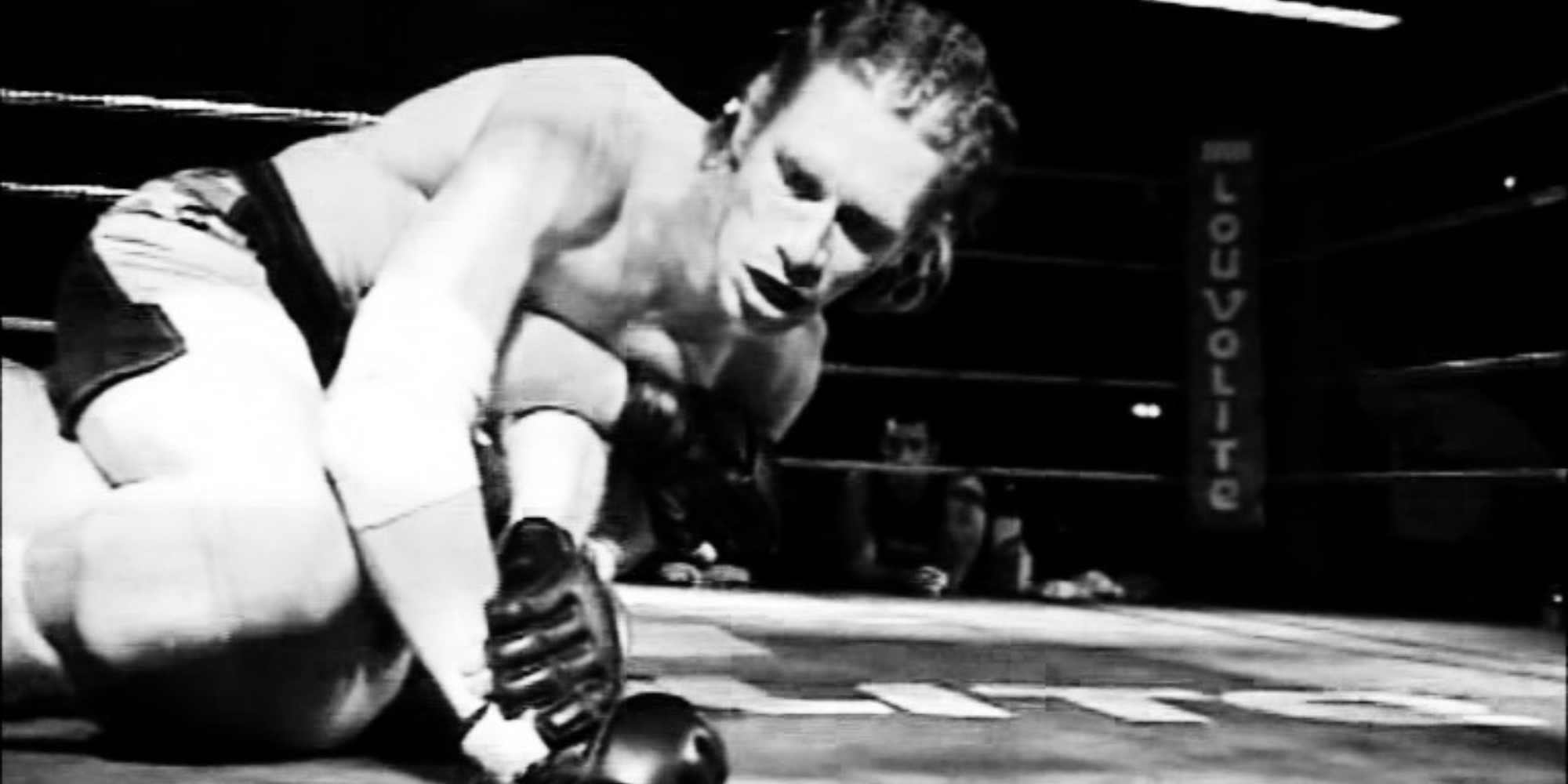
So if someone is already a customer, how do you recommend they approach you?
“We look for somebody who’s enthusiastic and genuine. If you’re already a customer then it’s hard to say no to you. Like if you buy our products and we don’t want to talk to you or work with you, that’s not exactly good is it? If somebody comes to me and says ‘I’ve been using Revgear gis since I was a white belt and now I’m competing at the IBJJF European Championship at purple belt, here’s my Instagram with me wearing all the Revgear stuff, would you consider sponsoring me and helping me out with my drive to win Euros?’ That would be a really difficult email to say no to, that would genuinely be difficult for someone in my position to have a negative response to.”
Wright has an even better suggestion for how to approach a brand if you don’t have a specific goal in mind other than sponsorship itself:
“One of the best sponsorship requests you could get is ‘Hey, I’d really like to work with your brand. What do I need to do?’ Anybody worth their salt who was dealing with sponsorship requests would at least ask you who you were, and then you’re into a conversation. If you spin it the other way and tell them who you are and what you’ve done straight away, maybe they’ll say yes or maybe they’ll say no. They might know a lot of people like you and the conversation is over. That conversation is the key thing, because then you can go back and forth and reach that point that works for both of you.”
Wright then asks me what I think the definition of sponsorship actually is. He’s asking the question to set up his next point, and I tell him that I would define it as a business paying a person in order to promote their brand. He disagrees though:
“I would argue that’s an exchange, not a sponsorship. It’s a common misunderstanding too, the actual definition of sponsorship isn’t that. The actual word sponsorship is ‘money that is given, usually by a company, to support a person, organization, or activity.’ Note that it doesn’t say ‘… in return for anything’ at the end. To say that any company wouldn’t want something in return is a bit naive, but it just means to pay someone else’s way. In major sports endorsements we’re just looking to gain wider recognition, it’s not usually an actual direct return. At the lowest levels, direct return is the only approach that makes sense.”
That leads him into a great insight that is invaluable to any BJJ or MMA competitor who’s reading this because they’ve just decided they want a sponsorship:
“From the point of view of the person wishing to be sponsored, they need to work out why they want to be sponsored. If it’s just because they want to spend less money on kit then that’s fine, I’m not knocking that, but they don’t really want a sponsorship. They just want a discount in return for a little promotion. A lot of brands will just say yes to that. The people who are successful at finding sponsorships at the lower level are those that can present a deal that has clear and obvious benefits for both parties.”
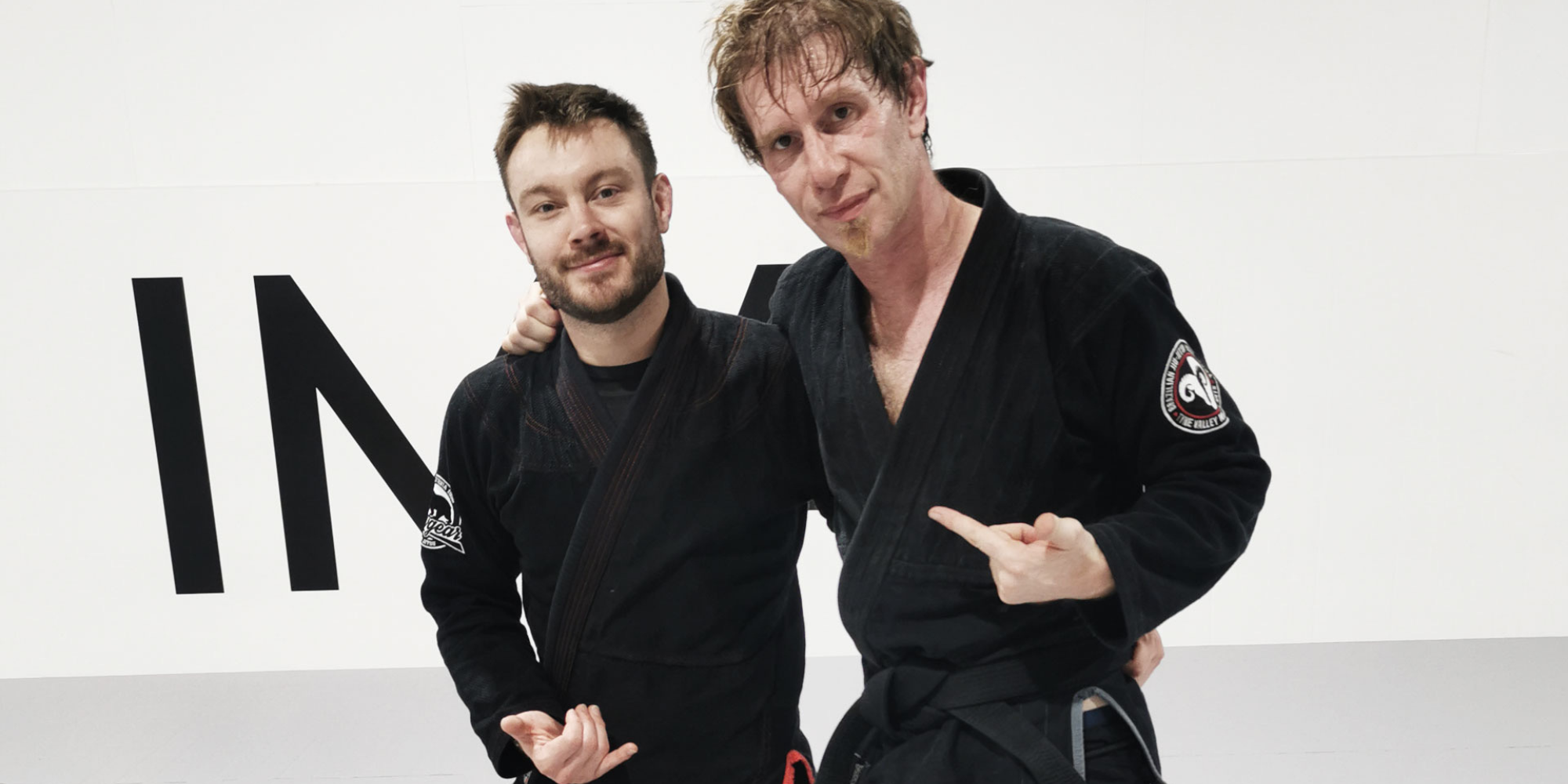
That element of it is the same for high-level competitors too, right?
“If we have a really high-level person come to us and ask us to sponsor something for like a thousand dollars and they’re going to put out a video or something; we’d look at that and say yeah, that’s a great deal. If they asked for a million dollars, we’d look at that and say no. That’s an extreme example but there’s a tipping point somewhere and it’s just about finding it. If everyone understood that, it would make everyone’s life easier.”
So what do you expect in exchange for sponsoring someone at the lower level?
“Some people say ‘we want so many social media posts a week and we want this and that’ but like, do we? What if they’ve only got 10 followers, what good is that? You could have a guy who’s a coach in a gym or a brilliant wrestler who’s just come to the UK and doesn’t speak a word of English, but is wrecking people already. Their social media following is f**k-all. They might have nobody looking at what they’re doing but they actually have influence. It’s within like 300 people in their club or physically seeing them out at competitions, but that’s actually a lot of influence. There’s a guy that a brand would consider sponsoring if they had the right approach.”
Do you not pay people directly for promotion on social media?
“We’ve had high-level coaches, UFC and ONE Championship level, come to us and say ‘I get paid X dollars for a social media post by this brand’ and in other industries that might make sense. Something like sports betting works really well or if you’re a cosmetics company who pays someone on Instagram to promote your products, even if one or two people become customers then that makes them their money back. Most people’s equipment for combat sports is worth less than $500 though, and it lasts for a long time. So chucking a lot of money on social posts for something like that doesn’t make sense.”
Wright was able to give us a specific example of that kind of sponsorship that might be more familiar to MMA fans:
“Conor McGregor was sponsored by a T-shirt company called Hera and while they paid him what seemed like a ludicrous amount of money for social media posts, it wasn’t about him as a fighter. It was about his enormous following and the fact that he’s an extremely fashionable guy. So paying him a ton of money for a few social posts appeals to the millions of people who follow him, you can see the obvious value there.”
We’ve talked a fair bit about what the brand might get out of sponsoring a fighter but what do you think are the benefits available for the fighter, other than the obvious?
“High-level people have different benefits. If we’re talking about lower-level guys who are coming up then one of the absolute biggest benefits, if you pick the right brand, is connections that you otherwise wouldn’t have access to. That’s totally unseen and this is the hard part, you’ve got to align with the right people and pick the relationship that will work for you.”
Wright explained that it’s a two-way street, but he was happy to give an example of how that can work in the athlete’s favor too:
“I would say that people who really want to be sponsored and move themselves on in the sport, if they’re interested in more than just cheap or free kit, they need to put some legwork in and be one of the visible advocates for that brand. That will open up a lot of the doors for them as long as they choose the right brand that has those connections that can help them progress. We have a kid we sponsored who mentioned going to Thailand, so we set him up with this guy and that guy who own gyms. Before he knows it, he’s got a whole plan of where to train while he’s there and he’s training with world champions.”
You mentioned choosing the right brand, what happens if they choose the wrong brand?
“You see so many people running after sponsorships without thinking it through too well, you need to think about what it might do for you beyond that. Not just whether or not they can give you a few hundred quid’s worth of gear. They’re not really developing a relationship with the brand, they’re just offering to be a promotional tool.”
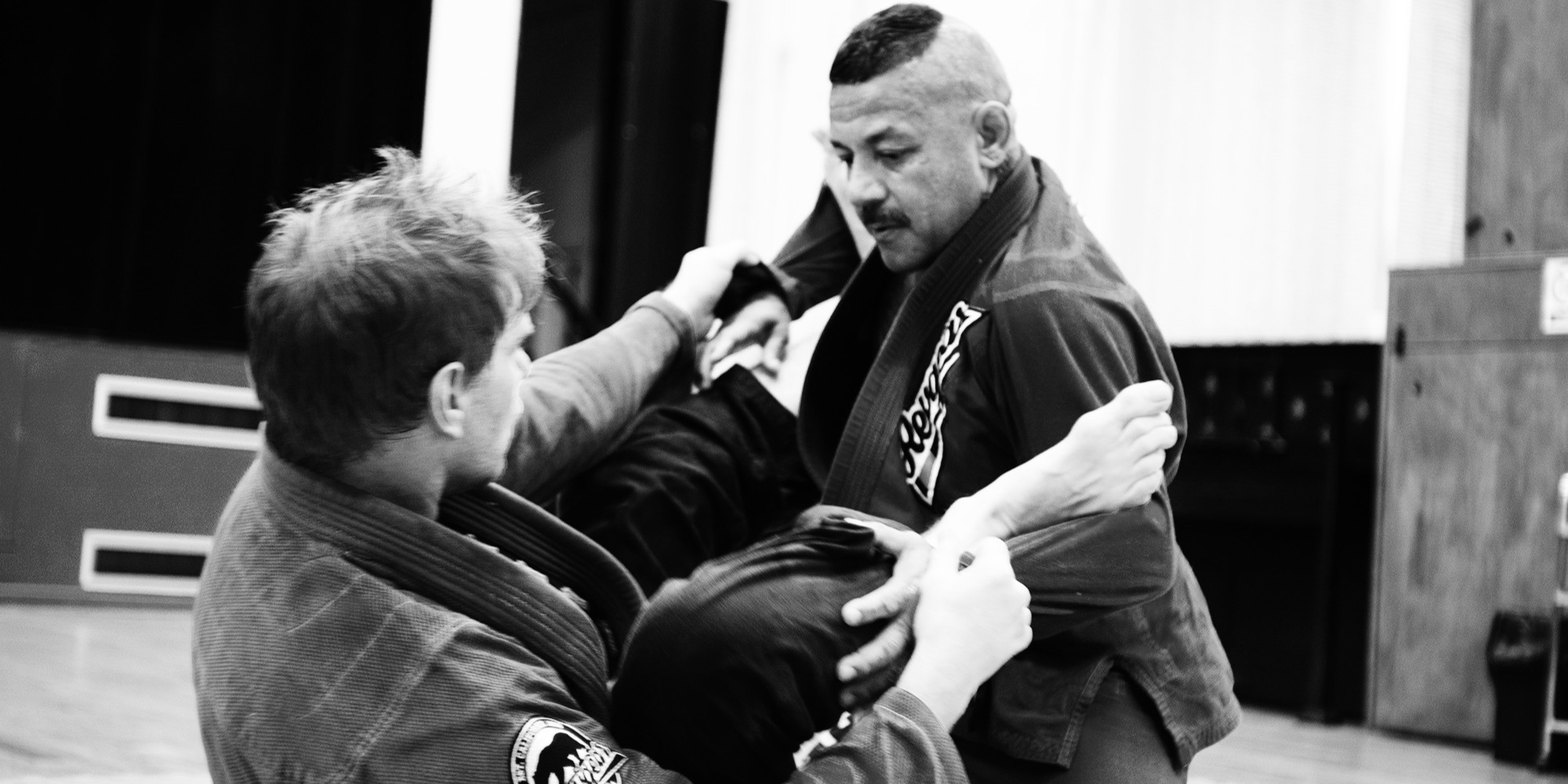
Is that a common mistake you see with newer or younger competitors?
“I see it with black belts too. Guys who have obvious influence who get their soul bought for next to nothing by a brand who do nothing for them. It makes no sense. They get a couple of free gis and rashguards or whatever, but they get asked to recommend all of their students buy their kit and end up getting a lot of money spent with the brand. What a great deal for the brand that is, but it’s a terrible deal for the athlete. How many gis do they actually need? Not many, but if they’re agreeing that all of their students are being pushed to that brand then that’s fantastic for the brand and not so much for them.”
Wright says that this isn’t just a problem for BJJ competitors and coaches though. These kinds of predatory sponsorship deals are common in MMA too, and they can have pretty bad effects on a fighter’s career:
“You saw this in the UFC in the olden days. The cheap guy who constantly took sponsorship deals with different companies would end up getting offered nothing when he needed it. Whereas the guy who stuck with the same company through thick and thin before needing to change, he’d get a big deal. Loyalty is a big thing. When a guy chops and changes brands, his word is worth s**t really.”
After talking about some of the ups and downs of sponsorship as a whole, it was time to talk more about how Revgear operate and what they offer:
“We actually struggled as a brand a little because we were so used to dealing with management companies and massive gyms like Kings MMA, American Top Team, and American Kickboxing Academy. We were forever being presented with athletes to sponsor, to the point that we would just send the equipment to the coach and they’d deal with the athletes themselves. We developed Fight Tribe as a program that literally anybody could join, no matter what level of the sport you’re at.”
How does Fight Tribe work?
“The idea is that we set out the deal very clearly at the first level. If you want a relationship with us then the door is wide open, we define what you get at the first level but it’s a ladder up from there. We’ve had two major fighters at top organizations who I won’t name, they’ve had offers from other brands but they’ve joined Fight Tribe at the lowest level because they’ve worked out that the deal they’ve been offered here surpasses anything they could get as a sponsorship.”
You mentioned different levels, how does that work for those who want to progress?
“We haven’t built Fight Tribe just for people who want to be on the bottom level of it. It’s still a good deal, they get a big discount on kit, they earn money off it, and they can give a deal to all their friends and training partners. It’s a pretty good deal. If you really want to push things on, the guys who really represent us and develop a relationship with us through Fight Tribe get a handler. They get a contact point and it means that if they have big things coming up then we can do a lot of collaborative work, we have a lot of valuable relationships that can help people develop their careers. That’s a totally different situation than the guys who call themselves a sponsored athlete when they just get sent a few gis.”
This is all really helpful for anyone in BJJ and MMA who might be thinking of looking for a sponsorship soon, could you summarise your advice for them?
“First and foremost, pick your brand. Do your research and pick the people you have a natural alignment with. After that, be a customer first. Put some skin in the game. If you’re not prepared to buy anything the brand sells, why would they give it to you for free? Then, be visibly endorsing that brand. Basically make it impossible for them to question why you want to work with them. Then when you make your approach, connect with the right person. In our case it’s me, but every brand has a guy who deals with this and that is the guy you need to build a relationship with first. Make it impossible to say no. If you want to do that with us then start out by joining Fight Tribe!”
That’s great! Is there anyone you’d like to thank before you go?
“There are a few people I’d like to thank publicly for being part of my martial arts journey. Alan Orr, Angel Lopez, Matty Jobes, Robson Gracie, Liam Cann, ‘Speedy’ Elliot & Dave Harewood.”
If you want to check out REVGEAR’s Fight Tribe sponsor program be sure to read Alex’s points in the interview then head over to:


